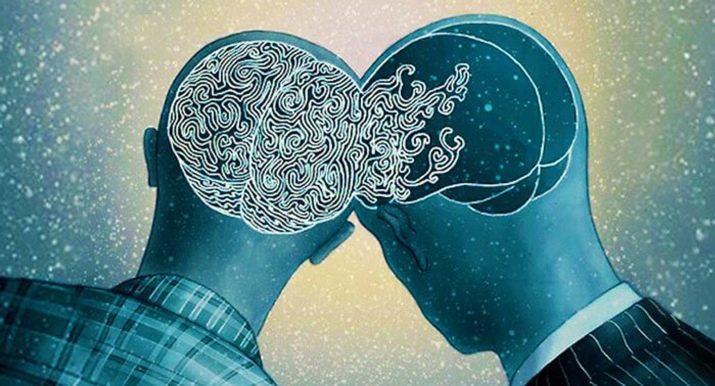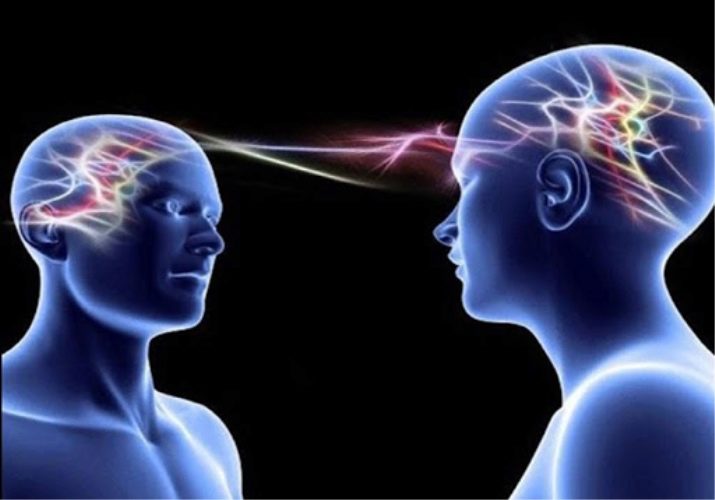Empathy: Determining Is It Good or Bad?

Not every person is able to plunge into the emotional state of another person. Sometimes such a connection is broken, and sometimes it is painful for the hypersensitive individual.
What it is?
Empathy is an individual's response to the emotions and state of mind of another person.... This feeling is the opposite of indifference. The following definition in psychology is known: empathy means the ability to empathize with another person, to be aware of the degree of his worries. In contrast to simple sympathy, this concept is much broader: as a psychological property, empathy involves imagining oneself in the situation of a stranger and experiencing with him, experiencing his emotions. Thus, at its core, the empathic process contains empathy, empathy, and encouragement.
Communicative competence is an important part of empathy, serving as a prerequisite for productive professional communication. Empathy as an integral component of leadership is necessary for executives who have a subtle sense of the potential of their subordinates and can emotionally involve them in the work process in order to perform different levels of tasks. The power of empathy lies in the ability to communicate constructively and negotiate successfully.

An empath is a person who has a tendency due to innate or, over time, developed abilities for emotional response.
An empathic person can immerse himself in the state of the interlocutor, understand his emotions, react to his feelings and feel them on himself... A sense of empathy can be activated when reading a book or watching a movie, and then the reader or viewer empathizes with the main characters, mentally finding themselves in their place.
Neurophysiologists refer to mirror neurons that reflect the emotions of another person and make their host feel the same way. If someone nearby is sad, then the auditory and visual analyzers perceive and transmit this information to the nerve cells. It is the mirror neurons that provoke monkeys to repeat the actions of their relatives. Children from birth on an unconscious level smile back. Kids subtly feel the emotional state of those around them by their facial expressions, gestures, words.
Empathy encourages the subject to analyze his own actions... Taking a closer look at your actions helps you better understand those around you. Reflection allows you to observe changes in your own mood and affects the ability to understand the mental pain of others. On a human scale, in terms of the manifestation of empathy, Russian people do not make it into the top ten.
According to American researchers, Russians have a calm attitude towards violence and other shocking things.

Advantages and disadvantages
Being empathic is good and bad at the same time. Prospects for professional development, the desire to smooth out various conflicts, the desire to help others are considered positive moments in the presence of empathy.... Such an individual easily finds a common language with others, is rarely deceived.
The negative side is rapid emotional burnout, increased anxiety, the likelihood of inflicting moral suffering on oneself. Immersion in the feelings of other people leads the subject to a strong emotional stress. A conscientious person tries to help everyone in need. This takes away from him a lot of strength, energy and time, but does not always lead to the desired result. Often, empathic individuals, focused on the problems of others, forget about personal experiences. Neglect of their own person leads them to the fact that they themselves are left without help with negative inner feelings.
It is difficult for such people to perceive various tragic events. They let them pass through themselves, take them to heart. Bad news leaves a deep imprint on their souls. Not every heart is capable of withstanding universal sadness. Friendship and love relationships also affect their emotional state. The constant experience of negative emotions negatively affects your well-being and health. There is a risk of acquiring a mental disorder. Sometimes problems arise when communicating with others.
Often, a person who knows how to sympathize with others cannot resist the subject who has rude to him. He is afraid of hurting the individual who has offended him.

Species overview
Various forms of empathy are known to psychology.... Empathy is expressed in understanding the worries of another person, the desire to provide support. With empathy, oneself identifies with an individual experiencing certain feelings. A person feels the mood of a partner, experiences with him.
Rational or intellectual
Cognitive (intellectual) empathy - it is understanding someone's thoughts in a rational sense. She is aerobatics, not available to everyone. This form of empathy is inherent in people who are well versed in human values, life guidelines, reactions to certain stimuli. They understand any emotional state of the interlocutor.
The appeal to analogies, comparisons, comparisons leads to a rational contemplation of the emotional background of others.

Emotional
This type is characterized by the perception of the feelings of others on an emotional level. An empathic subject easily plunges into the inner state of a partner, catches his feelings and feels them with his own emotions.Any plot from the crash site leads the empath to a long experience of tragedy, compassion for strangers.
This condition provokes emotional and nervous overload.

Intuitive
The predicative (intuitive) form consists in the ability to identify possible reactions of a person to some events, to anticipate the opponent's behavioral actions in a particular situation. The subject is able to predict the feelings and mood of his interlocutor, to prevent a quarrel or conflict. He can understand the true motives that prompted the partner to act in a certain way. Such a person seeks not to disturb the psychological comfort of the partner.

Levels
Low level based on a primitive perception of facial expressions of others, which the subject mentally compares with previously encountered facial expressions. Such people do not have a formed habit of paying attention to the emotional state of those who are nearby. They look at other people's problems exclusively from the standpoint of their own feelings, and do not perceive the emotions of others. A person with this level of empathy avoids company, neighbors and communication with colleagues, because it is difficult for him to get along with them. A low degree of empathy is more characteristic of men than women.
Average level inherent in a person who wants to understand the state of the interlocutor. He asks his partner, finds out the reason for negative emotions, tries to put himself in his place, but does not really think about other people's experiences. Such personalities are sensitive to the emotions of their loved ones, and are most often indifferent to the problems of strangers. They can comfort a stranger and help him, but they will not dive deeply into his experiences.
This degree of empathy is common to most people on earth. It is considered the standard position.

High level testifies to the ability to easily feel the worries of other people, quickly recognize the emotions of a new acquaintance and form his image in your head. A person with this level is able to listen to the interlocutor, notice all the details, empathize with him, while not experiencing discomfort. The emotional perception of the experiences of another person does not cause personal suffering. Such people are active, friendly and sociable. They strive to be as useful as possible to those around them, they get to know each other easily, they have many friends.
Increased degree of empathy causes great discomfort to a person, because he takes other people's problems too close to his heart. Such people are characterized by excessive impressionability, vulnerability and inability to control their feelings. The subject is acutely experiencing the pain of others, passes it through himself, worries and suffers from other people's problems. The increased level negatively affects the life of the empathic person, impairs communication skills and sometimes leads to the development of mental illness.

Signs of presence
Diagnostics of the level of mental responsiveness is carried out using various tests... Usually a series of questions are asked that require honest answers. Popular express-method of I. M. Yusupov. She offers 36 judgments like "I am indifferent to criticism in my address" or "if the horse pulls badly, it should be whipped." The subject must evaluate them on a five-point system. The respondent's level of empathy is determined by the sum of the points received.
Well-developed empathy is indicated by the ability to look at the situation through the eyes of another person, feel a partner on an intuitive level, agree with someone else's opinion. In communication between a man and a woman, there is a feeling of trust in each other. They can easily understand the mood swings of their significant other. The ability to listen, to delve into specific life circumstances is of particular importance, since the interlocutor feels that his partner is not indifferent to his problems. A soulful person will always give useful advice to a person in need of it.
The willingness to help encourages the subject to look for additional opportunities to be useful to a large number of people. This is evidenced by numerous examples of how at any time of the day a person abandons all his affairs and rushes to save loved ones and unfamiliar people. So, at night, friends are in a hurry to rescue a comrade who has gone on a spree from the police. There are people who cannot pass by a chick that has fallen out of the nest or a dying dog.
Active empathy testifies to the ability to penetrate with all your soul into a specific situation, to show sympathy, interest and to take genuine participation in the life of a loved one.

Often, deep immersion in other people's experiences provokes loss of peace and lack of sleep.
Reasons for lack of empathy
Some people have little or no empathy. People who are not inclined to understand the mood of others do not spare their inner world. Some individuals forget the unpleasant and painful feelings they have ever experienced, and therefore cannot understand those who are currently faced with a similar problem.
The cause can be psychopathy, sociopathy, narcissism.
- Patients with psychopathy do not develop empathy and empathy for others due to changes in the parts of the brain structure that are responsible for emotions and empathy.
- A disorder in the structure or number of mirror neurons is the cause of autism. This disease affects people who are unable to observe and interpret the language of gestures and body movements. They find it difficult to understand how to interact with others.
- In narcissistic disorder, a person believes in his own greatness, his own exclusivity. Narcissists use others to fulfill their goals in a complete absence of compassion for them, empathy.

How to develop?
Empathy can be developed by observing other people experiencing different emotions or in difficult situations. Practical skill practice helps a lot.
- Know yourself, listen to your emotions, reflect. Each evening, analyze the emotions you experienced during the events that happened to you during the day.
- Listen carefully to your interlocutors. Try to understand and accept with your heart the words spoken by others.
- Imagine yourself as an actor. Imagine your persona in the form of different heroes, imbued with their feelings.
- Come to the aid of your family, friends, colleagues. If someone asks for your advice, try to give it.
- Pets promote responsiveness. At the mere sight of kittens, puppies, chickens, a person is moved and wants to protect tiny creatures.

Psychologists recommend doing group assignments.
An individual doing the exercise with other people finds himself on the same wavelength with them and acquires the skill of empathy. Many tasks are aimed at eliminating the inability to copy voice, speech, gestures, and body movements.
During the exercise "Monkey and Mirror", the subjects are combined in pairs. One person pretends to be a mirror, and the other becomes a monkey. A monkey with the help of facial expressions expresses various emotions. The mirror player must copy these feelings. Then the partners switch roles.
For the participants of the game "Guess the feelings" give out cards with the names of emotions. The player must, with the help of his facial expressions, depict the feeling indicated in his piece of paper. Those present need to guess the emotion.
Following task "Phone" implies imitation of a conversation with a relative, loved one, colleague, boss. Players receive a card with an imaginary interlocutor written on it. Each person takes turns conducting a conversation with the character he inherited. The people around him need to recognize who he is talking to.

How to control?
One should not completely dissolve in the feelings of others. You need to manage your emotions.To do this, you need to be aware of your own goals, motives, values, beliefs. Learn to distance yourself from tragic situations at least for a while. Don't go over the events in your head all the time. It is necessary to comprehend reality not in a depressing state.
Learn to have empathy without harming yourself. Adjust and use it correctly. In order to correct your condition, follow some rules.
- When you are overwhelmed with the experiences of another subject, focus your attention on something else. Try to interrupt the conversation and leave. You can just keep quiet to calm down. Count to a hundred in your mind. It is important to return to your own feelings.
- Ponder each case that is compassionate. Reflect on who and what you empathize with.
- Act with awareness. Do not give up sympathy for another person, but do not let other people's negative emotions into your soul. Learn to turn off empathy on an unconscious level. In this case, breathing exercises and meditation help well. Provide support to those in need without harming yourself.

Can you get rid of it?
Sometimes the inappropriate expression of empathy has a negative effect on the psyche of the individual. People who are constantly caring for the needs of others expose themselves to stress and fatigue due to constant compassion. Learn to abstract yourself from outside influences. Satisfy your own emotional needs.
There are effective ways to protect yourself from negativity.
- It is necessary to imagine a real shield in front of you or imagine yourself under a hood that does not allow information flows.
- Interrupt any conversation during which you start to experience strong negative emotions. Stop talking and walk away.
- Weed out other people's negative experiences, do not let them seep into your consciousness.
- Avoid negative people who want to dump their energy junk on you.

Professions for empaths
This quality is necessary for specialists whose work is related to communication: doctors, psychotherapists, psychologists, teachers, salespeople, managers, leaders. Psychological empathy is expressed in the recognition of the emotional state of a person and the expression of true empathy. A compassionate doctor can calm and support the patient, thereby speeding up his recovery.
People who feel and understand another person often find themselves in pedagogy. They make excellent educators and teachers. Pedagogical empathy is manifested in the ability to easily establish contact with the child. An empathic teacher always takes into account the inclinations and personal characteristics of his ward, does not dispute his opinion, unobtrusively directs in the right direction. He feels the fears, doubts and needs of the child.
Actors need creative empathy in order to get good at the role. Then he will be able to try on the image of a hero, imbued with his feelings and thoughts, understand the reasons for his actions. The viewer believes such an actor.










